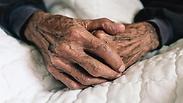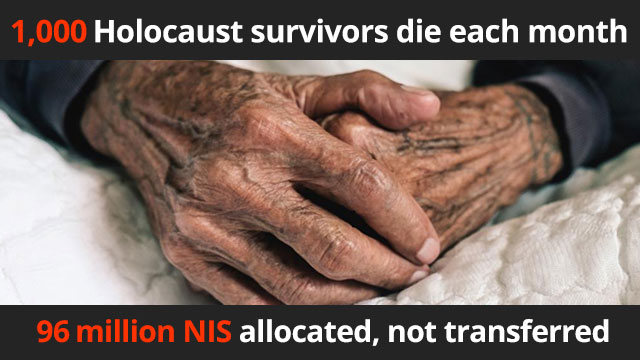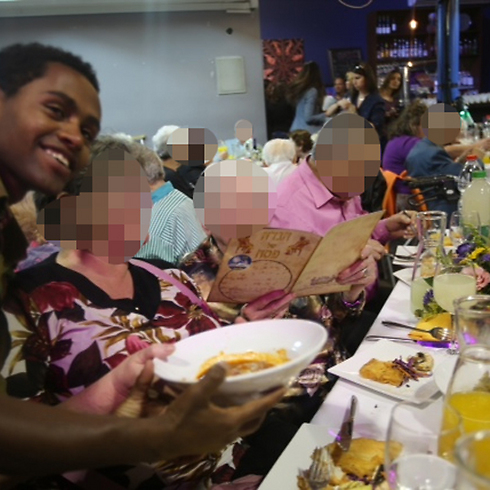

State comptroller: Government continues to neglect Holocaust survivors
Some 214,000 Holocaust survivors and victims of anti-Semitic harassment live in Israel and each month 1,000 of them die. The comptroller warns that time is running out, and in the meantime tens of millions of shekels allocated to the survivors have not been released.
A few days before Israel marks its annual Holocaust Remembrance Day, the state comptroller released a report that points to serious failures in the State of Israel's treatment of Holocaust survivors.
State Comptroller and retired judge Yosef Shapira called on the state authorities to act quickly. "Time is running out. The state should continue to make improvements and therefore the government should continue to strive to solve the existential distress of all needy elderly in the country, including Holocaust survivors. The survivors who experienced the events of the Holocaust are entitled to live the rest of their lives with dignity and to receive the recognition they deserve."
There are approximately 158,000 Holocaust survivors and 56,000 people who were recognized by the government as victims of anti-Semitic and racist harassment during World War II currently living in Israel. Every year, wrote the comptroller, about 12,000 survivors pass away. The average age of Holocaust survivors living today is 85.
The comptroller opened the report with the issue of state aid to Holocaust survivors, quoting Moti Hammer's song A Single Human Tissue. In recent years, the State Comptroller's Office has placed special emphasis on the issue of caring for Holocaust survivors, and this report is a direct continuation of previous reports published and reports of Committees appointed to deal with the subject.
The report stated that "even though non-governmental organizations working for the benefit of Holocaust survivors try to help them with good intentions, their activities, estimated at tens of millions of shekels a year, are usually carried out according to needs that they identify, without a guiding hand, without prioritizing the needs and without coordinating between themselves and other governmental bodies."
"In the absence of coordination between all parties, there is a vacuum in meeting the needs of survivors in some areas of their lives, but sometimes there is duplication in the provision of services, lack of prioritization and inefficiency in the allocation of resources."
The report also underscored the absurd reality in which elderly people who are not Holocaust survivors are entitled to a greater discount on municipal property taxes than Holocaust survivors.
In recent years, there have been quite a number of decisions aimed at assisting survivors, but according to the report, decisions are one thing, while actions are quite another.
In conclusion, the state comptroller wrote that "the attitude of the state to Holocaust survivors at the end of their lives may affect the memory of the Holocaust for future generations and serve as a case study for the entire elderly population in Israel. Time is running out and there is no time for the state to make any improvements.
"Therefore, the government must continue to strive to solve the existential distress of all the needy elderly in the country, including Holocaust survivors. The survivors who experienced the events of the Holocaust are entitled to live the rest of their lives with dignity and to receive the recognition they deserve."
(Translated and edited by N. Elias)

















